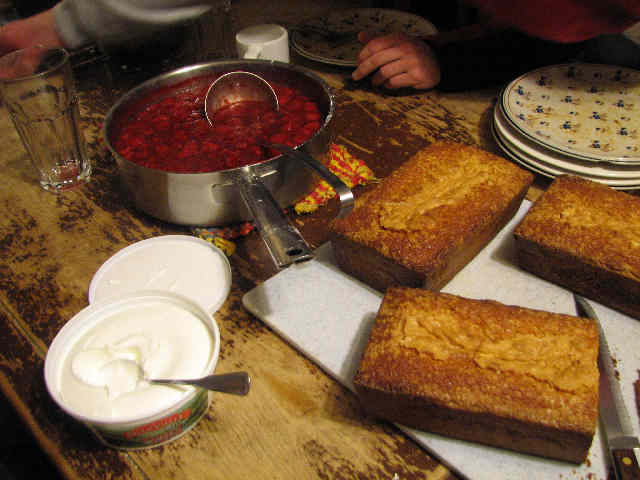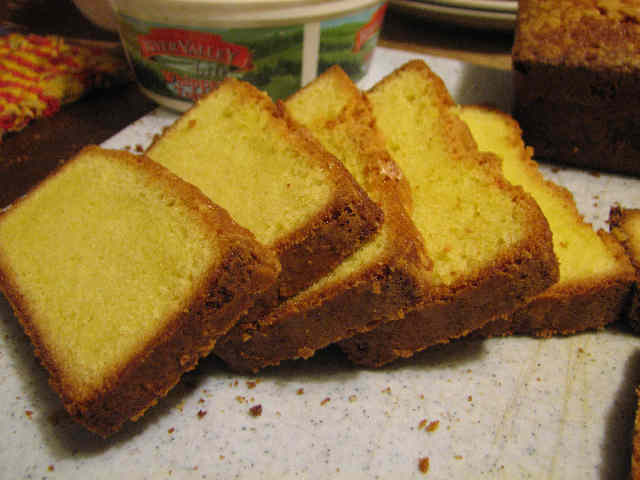“You have lived the life of a nun: no doubt you are well-drilled in religious forms;—Brocklehurst, who I understands directs Lowood, is a parson, is he not?”
“Yes, sir.”
“And you girls probably worshiped him, as a convent full of religieuses would worship their director.”
“Oh, no.”
“You are very cool! No! What! a novice not worship her priest! That sounds blasphemous.”
“I disliked Mr. Brocklehurst; and I was not alone in the feeling. He is a harsh man; at once pompous and meddling: he cut off our hair; and for economy’s sake bought us bad needles and thread, with which we could hardly sew.”
“That was very false economy,” remarked Mrs. Fairfax, who now again caught the drift of the dialogue.
From Jane Eyre, chapter 13, by Charlotte Bronte.
Oh, the cruel, cold and senseless things done in the name of economy. This dreadful topic was brought to my mind as I attempted to read America’s Cheapest Family Gets You Right on the Money, by Steve and Annette Economides.
Before currency, there was a barter system. With the barter system, everyone knew what good economy was: get the most of what you want, while giving away the least of what you want to keep. Now, with all buying power “standardized”, people seem to have totally forgotten what economy really is.
Let’s say you want to buy a car. I offer to sell you one for $100. What a deal, right? Hah! Everyone knows better than that. Unless you are looking for a complete fixer-upper-hobby car, you know that any car being sold for $100 is incapable of meeting the needs you have for a new car. It won’t run, or it will keep breaking down, or perhaps it’s just been stolen and somebody needs to unload it fast. In other words, since the car doesn’t accomplish your goals, it doesn’t matter how cheap it is, it’s still a bad idea—false economy.
Now, let us consider chapter 2 of America’s Cheapest Family wherein they tell you how to be economical with the grocery money. I quote (from page 35):
9. Picky Eaters
DON’T allow them! Period!
DO encourage kids—and spouses, for that matter—to try everything that is served. We have a three-bite rule at our house. Steve [that is, Mr. Economides] has learned to “enjoy” beets, even though he used to think they taste like “dirt.” Now he thinks they taste like “sweet dirt.”
Now, we must ponder, is this economical? Leaving aside all questions of the ethics and rights of picky eaters (when I was a child, onion physically hurt my tongue, it was so strong. I wouldn’t eat them; now I do—they no longer cause me pain) and the merits of canned beets (never mind tasting like dirt, I have to suppress a gag instinct just to get a bite down), let us focus on the question of whether or not it is economical to eat things you really do not enjoy.
If buying things that do not accomplish your goal—whether it is worthless thread that won’t hold a mending job, or a car that won’t run—is bad economy regardless of price, then the question becomes this: What is the goal of obtaining edible substances?
Does it have anything to do with flavor? Of allowing people to have unique and individual tastes in everything, including food? Does it have anything to do with texture? Does it have anything to do with enjoying yourself? Is is it meant to nourish, encourage good health, and provide for a body’s specific need?
Or is it merely meant to keep you physically alive, and at the least monetary cost possible?
No matter which way you answer the question, it is still false economy. Why? Because if food has anything to do with first set of questions, being forced to eat cheap but disgusting food is not fulfilling the purposes of buying food.
And if you answer yes to the second question, it is false economy because there are much cheaper ways to accomplish that goal: allow me, for instance, to introduce you to some dumpsters. Foreign dignitaries have long marveled at the things Americans throw away; they could easily feed their villages with it. Why not? You doubt that dumpster-diving is capable of sustaining life?
Allow me to introduce you to Malika Oufkir, who has written two books, Stolen Lives and Freedom: The Story of my Second Life. (Incidentally, it is rather disturbing how many unique hits you will find on Amazon when searching for “prison diary”—and I’m sure that there are many more that didn’t turn up under those keywords; Stolen Lives didn’t.) Now, I do not remember which book it was in—I think it was Freedom, but perhaps she mentioned it in both, but Malika shared her culinary accomplishments that she achieved during the imprisonment of her and her family. I don’t own either book, so I cannot quote directly, but it was a vivid enough description that it has quite stayed with me.
First she takes the bread, quite stale, and she scrapes off as much of the rat poop and mold as she can. Then she breaks open some rotten eggs, which are quite black inside, and lets them sit in a shallow dish until the powerful stench has dissipated somewhat. She adds a few pinches of sugar, and I think powdered milk? Then she soaks the broken bread in this mixture, and cooks it. Sort of like a prison version of French Toast. She reports that her family loved it—the closest thing to a culinary treat they could get.
Is that foul mixture capable of sustaining life? Apparently. She’s still alive to relate the tale. But is that all food really needs to be? Certainly not! All members of her family have severe health problems left-over from their time of malnutrition (though certainly not all of their problems can be traced back to malnutrition). But do we fault any of them for eating it? Why would we? Their only other choice was no food at all.
So while I certainly recognize that there is a time and place for eating detestable things, I don’t believe “economy” counts as a good reason. The money is short, and all you are able to buy is canned beets or nothing? Bring on the beets! But that’s a question of necessity, not economy, which is simply getting the most of what you want while giving up the least of what you want to keep.
Of course, you may have discovered the loop-hole by now. Good economy is “getting the most of what you want, while giving away the least of what you want to keep”. In other words, it has very little to do with money at all. If you value, as they say on p. 34, “always be eating food that was purchased at the lowest possible price” more than you value the enjoyment of the life, food, and personal tastes that you have—well, it would seem to say that eating canned beets is indeed economical.
The important thing is to realize that there is a difference between being “cheap” and being “economical”. Just because something is “the lowest possible price” doesn’t mean it’s economical. Looking for coupons, clipping coupons, remembering what coupons you have, finding the products you can use the coupons on, not loosing the coupons and remembering to use the coupons at the check-out are only economical if you value what ever amount of money is saved more than you value your time that you could have spent on other things. Eating fresh fruits and vegetables for only the first two weeks out of a month is only economical if you don’t mind eating processed fruits and vegetables, which loose some of their nutrients, taste and texture the more they are processed.
You must keep in mind what purpose it is that you have set out to accomplish. For example, on p. 15, they tout that “By comparison, we spend just $350 per month to feed a family of seven, including three growing boys!” Yeah? There’s a little picture of their family on the front cover. I’ll admit the females look perfectly well-fed, but compared to the growing boys and young men I need to feed, their boys all look like scarecrows without enough straw. Of course, not everyone is feeding a bunch of hulking, muscle-bound barbarians like I am, but I can promise you that if I tried to serve, as they recommend, “yogurt with fruit and crackers” for lunch, many of them would wind up being shaky from hunger by supper. I’ve seen it happen before, and I can tell you that such a “light” meal is not capable of sustaining the crowd I’ve got to feed. It’s a snack, nothing more. It is not economical when it doesn’t accomplish it’s purpose.
The plain fact of the matter is that different people have different nutritional needs. Another effective version of false economy is to only have female children, and give all the males up to adoption. Females eat a lot less than males. But even among males, there is a huge range of nutritional needs (some people will always be naturally skinny as a fence rail, but don’t expect everyone to live up to that). Even among any given individual, a persons needs will vary dramatically depending on what they’ve been doing that day.
Perhaps the most money-saving advice would be to do as they do, and “live in a suburban area where six to ten chains compete for market share” (emphasis mine). That would be very economical—provided you had no problems living in a suburban area (and it makes me a little sick to think of it). Location does play a part. I imagine it’s even cheaper to sleep on a park bench, but, if I have I choice, I’d rather pass on both of them.
What it comes down to is this: There Ain’t No Such Thing As a Free Lunch. You will always be paying somehow. The only question is how you will chose to pay. If you accept their economical system that “low dollar cost trumps all”, then most of their food shopping advice makes sense. But if anything—nearly anything at all—means more to you than hording all the little pieces of green paper that you can, you will find that most of the food shopping advice they give is as worthless to you as a car that won’t run.
I have had people tell me before, “Why don’t you buy bottled spaghetti sauce? It’s actually cheaper than making your own!” Because I don’t think that U.S. dollars spent is the most important factor. The quality of homemade sauce far exceeds that of pre-bottled sauce. Therefore, I am getting more of what I want (good food), and the few pennies different is not enough to out-weigh it. You can buy chocolate eclairs for a fraction of the price and time it would take to buy it—but the store-bought ones will be insipid in comparison.
If you want to save the most money, you might try looking in the dumpster out back to see if they’ve tossed any that were a day past expiration. If you want a true treat, something that is full of flavor and rich (as opposed to being full of fillers—commercial production specializes in keeping the cost of ingredients down), something that is truly extraordinary to eat. . .try making your own.
Only you can decide which is most economical.




